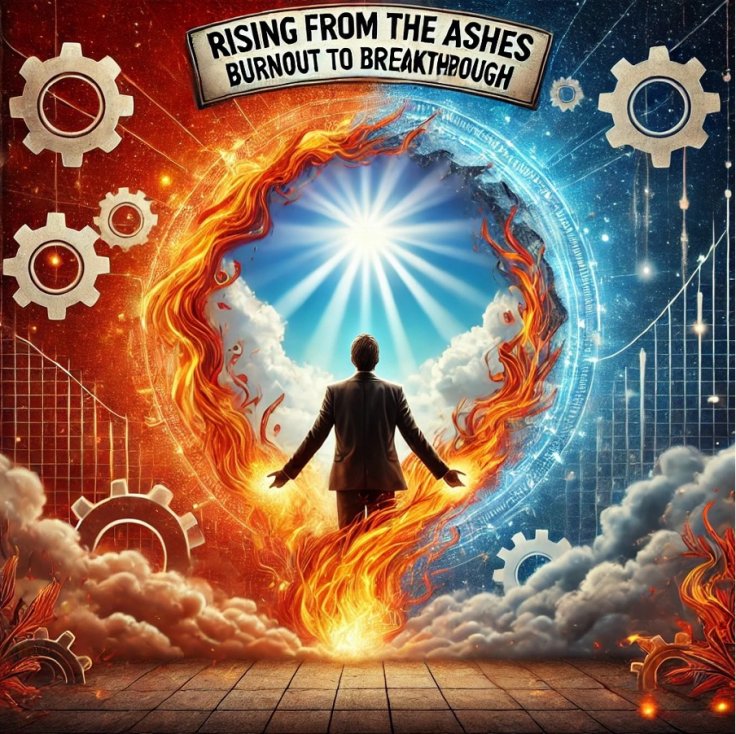
Burnout is a silent adversary that creeps into the lives of even the most passionate professionals. For software engineers, it's a particularly insidious challenge. Long hours, high expectations, and the constant need to innovate can affect mental and emotional well-being. Yet, overcoming burnout is possible, and the journey can lead to profound personal and professional growth.
Recognizing Burnout: The First Step to Recovery
Burnout often hides behind the facade of productivity. You might not realize its grip until it's too late. Reflecting on his experience, Gennady Dmitrik, an independent expert, iOS developer, and startups founder in FinTech and HealthTech areas, shares his experience of more than 20 years in Software Engineering and the most valuable practices and methods obtained. Gennady recalls:
"The last time I fell into burnout, I only understood its depth on the first day of having enough sleep on a forced vacation. That moment made me realize how much I needed immediate action to recover."
Key signs include:
- Chronic fatigue
- Feeling unmotivated
- Performing below expectations
- Becoming emotionally detached
Recognizing these red flags early is crucial to reclaiming energy and creativity.
Preventing Burnout: Building Sustainable Practices
Burnout can often be mitigated with thoughtful processes and a supportive team culture. Establishing clear expectations, fostering open communication, and prioritizing empathy are vital steps toward creating a healthier work environment. Here are actionable strategies:
1. Create Normalized Work Processes
Clear, fully described tasks are the backbone of effective workflows.
Gennady advises:
"Set up conditions and criteria for the definition of ready for development. "Ready for development" refers to preconditions that ensure tasks are actionable. This clarity benefits not only the development team but also ensures QA and stakeholders align without ambiguity. It's especially valuable in force majeure situations when another developer needs to step in.
Defined processes save time, reduce confusion, and streamline releases across platforms.
2. Foster Communication and Empathy
Agile methodologies are about more than just frameworks - they're about people, it's a mindset, that emphasizes flexibility and mutual understanding. Simple practices like joining daily meetings 5-10 minutes early for informal chats can strengthen team spirit:
"It's not mandatory, but those small talks allow teammates to share stories or seek support, fostering a healthy, empathetic team.
3. Avoid Toxicity at All Costs
Toxic environments are a fast track to burnout. Avoid toxicity from the start. If you can't eliminate it, leave as fast as you can. Constant stress undermines both creativity and productivity. Building a respectful and supportive culture is essential for sustainable success.
4. Take Breaks and Revisit Your Passions
Regular breaks are critical for avoiding burnout and maintaining energy and focus. Holidays or even short breaks are opportunities to recharge and reflect. Reconnecting with what drives you, whether professionally or personally, helps maintain creativity and inspiration.
By focusing on clear processes, supportive communication, and fostering a positive environment, burnout can be effectively prevented. Take control of your journey today - recognize the signs, embrace sustainable practices, and turn your challenges into opportunities for growth.
What to Do If It's Too Late
If burnout has already set in, immediate action is necessary. Consider these steps:
1. Seek Support
Reach out to teammates, friends, or your professional network.
Gennady shares:
"Even drafting a LinkedIn post can help. Structuring your thoughts often reveals answers, even if you never publish it. Sharing your challenges can bring unexpected support."
2. Redefine Priorities
Step back and identify the tasks that truly matter. Refocusing on initial goals can reignite your drive.
3. Reset Your Mindset
A well-planned vacation, engaging hobby, or even a few days of disconnection can provide the perspective needed to move forward.
Turning Burnout Into Breakthrough
Whether mentoring aspiring developers, managing entrepreneurial ventures, or crafting cutting-edge apps, Gennady's story underscores the importance of maintaining balance and purpose. By prioritizing empathy, well-being, and fostering collaboration, he has turned burnout into a catalyst for growth.
His dedication to clarity, empathy, and creativity has not only advanced his projects but also inspired others in the industry:
"For me, every setback is a setup for a comeback. The debugging process teaches life lessons: identify the problem, implement a solution, and iterate until it works. Every line of code and every new project is an opportunity to simplify lives and enhance productivity."
This mindset has helped him rise from the ashes of burnout, creating a career that inspires software engineers to embrace challenges, stay creative, and build a meaningful legacy.









